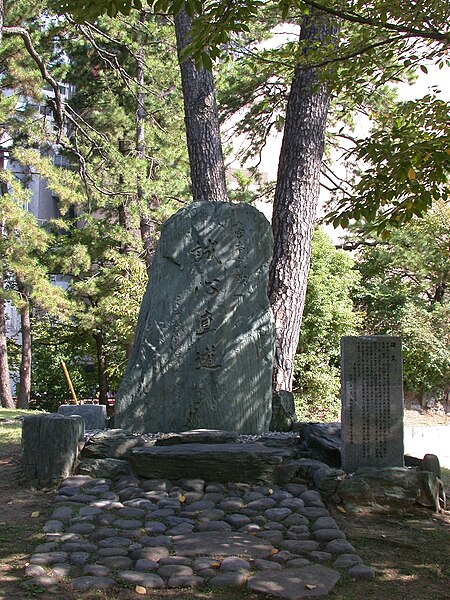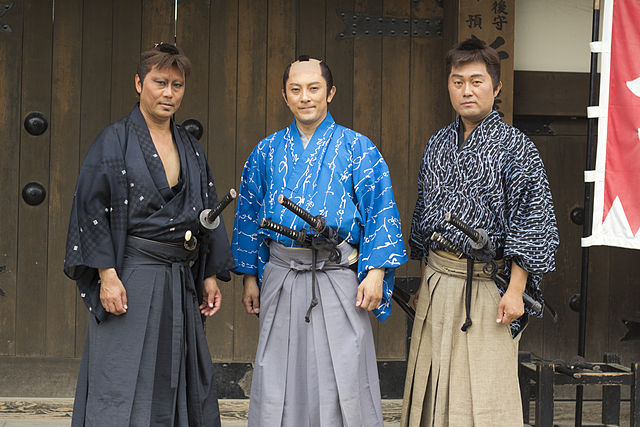Miyamoto Musashi , also known as Shinmen Takezō, Miyamoto Bennosuke or, by his Buddhist name, Niten Dōraku, was a Japanese swordsman, philosopher, strategist, writer and rōnin, who became renowned through stories of his unique double-bladed swordsmanship and undefeated record in his 62 duels. Musashi is considered a Kensei, a sword-saint of Japan. He was the founder of the Niten Ichi-ryū, or Nito Ichi-ryū, style of swordsmanship, and in his final years authored The Book of Five Rings and Dokkōdō.
Gorinto dedicated to Sasaki Kojiro in Musashi Temple (Ohara).
"Seishin Chokudo" (earnest heart, straight way) monument dedicated to Miyamoto Musashi, located in Kokura. These characters were engraved by Musashi on his bokken. It stands on the place where Musashi is supposed to have lived, at the foot of the castle. The Hombu dojo of a main branch of Hyoho Niten Ichi-ryū is in Kokura and demonstrates every year in front of this monument.
Miyamoto Musashi, Self-portrait, c. 1640
Miyamoto Musashi's grave in Ōhara-chō, province of Mimasaka
In feudal Japan (1185–1868), a rōnin was a samurai who had no lord or master and in some cases, had also severed all links with his family or clan. A samurai becomes a rōnin upon the death of his master, or after the loss of his master's favor or legal privilege.
A woodblock print by ukiyo-e master Utagawa Kuniyoshi depicting famous rōnin Miyamoto Musashi having his fortune told
Ukiyo-e woodblock print by Yoshitoshi depicting Oishi Chikara, one of the forty-seven rōnin
Graves of the forty-seven rōnin at Sengaku-ji
Actors portraying ronin on left and right, employed samurai in the middle. His chonmage makes him identifiable as an employed samurai.








